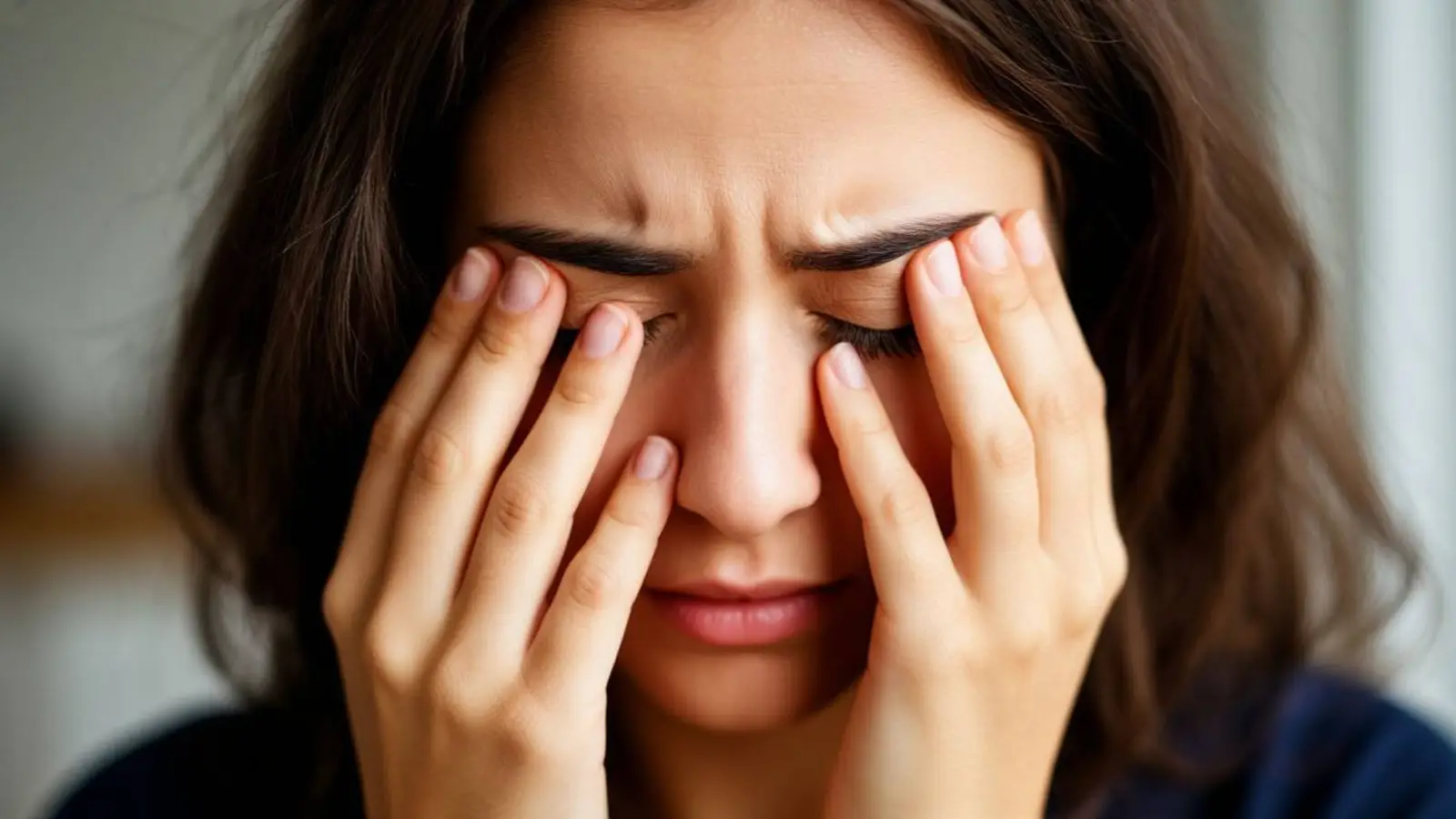Why your eyes feel gritty or dry: causes and fixes
Learn why eyes feel gritty, dry or burning—from screen time and dry air to allergies and lenses—and get relief tips, prevention, and when to see a doctor.

Изображение сгенерировано нейросетью Dall-e
A gritty sensation, burning, or itch in the eyes is a common complaint. Sometimes the cause is ordinary and short-lived; at other times, it can hint at more serious conditions that deserve attention.
Screen time discomfort
Long stretches at a computer or with a book can leave the eyes feeling as if they’re full of sand. Blinking slows down, the tear film evaporates faster, and blue light from the display irritates the delicate lining of the eye. In practice, short, regular resets often help more than people expect.
What helps:
- Take regular breaks and shift your focus from the screen to distant objects.
- Use lubricating drops.
- Keep the monitor at eye level, 50–70 cm away; hold a book about 40 cm away at a 60° angle.
Dry air and the environment
Beyond screens, the air around us matters. Dry indoor air in winter or heat in summer, dust, smoke, and strong wind all speed up tear evaporation.
What helps:
- Humidifiers set to 40–60% humidity.
- Protective glasses in windy conditions.
- Moisturizing eye drops.
Age-related changes
After 50, the eyes lubricate less effectively, and the composition of tears changes. Irritation can follow, particularly if macular degeneration is present. Small adjustments in daily habits tend to make a noticeable difference.
What helps:
- Moisturizing drops.
- Glasses with anti‑glare coating.
- A diet with beta‑carotene, lutein, vitamins C and E, and omega‑3.
- Regular appointments with an ophthalmologist.
Hormonal shifts
Menopause and pregnancy can reduce tear production due to changes in estrogen and progesterone levels. It’s a predictable shift, so a proactive plan pays off.
What helps:
- Moisturizing drops.
- Consultations with an ophthalmologist and a gynecologist.
- Possible hormone replacement therapy during menopause.
The impact of unhealthy habits
Alcohol and nicotine dilate ocular blood vessels, alter blood flow, and trigger dryness. Cutting back tends to show up quickly in how comfortable the eyes feel.
What helps:
- Moisturizing drops.
- Limiting alcohol and quitting smoking.
Eye conditions
- Stye: inflammation of an eyelash hair follicle.
- Conjunctivitis: inflammation of the eye’s clear outer membrane.
- Blepharitis: inflammation of the eyelid margins, often linked to infection, cosmetics, or lenses.
What helps:
- Warm compresses, careful eyelid hygiene, and drops.
- Consult an ophthalmologist if needed.
Contact lenses and allergies
Improper lens wear and allergies disrupt how the tear film spreads and provoke irritation. A careful routine usually restores comfort.
What helps:
- Proper lens care.
- Use of lubricating drops.
- Antihistamines that do not cause dry-eye side effects.
Medications and vitamin deficiencies
Certain antihistamines, antihypertensives, and antidepressants can reduce tear production. Vitamin A deficiency may lead to night blindness and dry eyes. It’s worth reviewing treatment plans rather than putting up with persistent discomfort.
What helps:
- Medication changes only on a doctor’s advice.
- Moisturizing drops.
- Vitamin A and foods rich in it: carrots, spinach, liver, eggs, pumpkin.
Injuries and surgery
Photokeratitis (sunburn of the eyes), laser vision correction, eyelid ptosis, and autoimmune diseases can cause a gritty feeling. In these cases, careful recovery habits matter.
What helps:
- Cold compresses and rest with eyes closed.
- Moisturizing drops and gels.
- In some cases, surgery.
Prevention and care
- Use moisturizing drops when risk factors are present.
- Shield eyes from wind, dust, and sun.
- See an ophthalmologist regularly.
- Maintain a healthy lifestyle and diet.
The feeling of sand in the eyes can be temporary and harmless, but at times it signals more serious issues. Staying alert to symptoms and not postponing a specialist visit when discomfort persists is the safer path.
